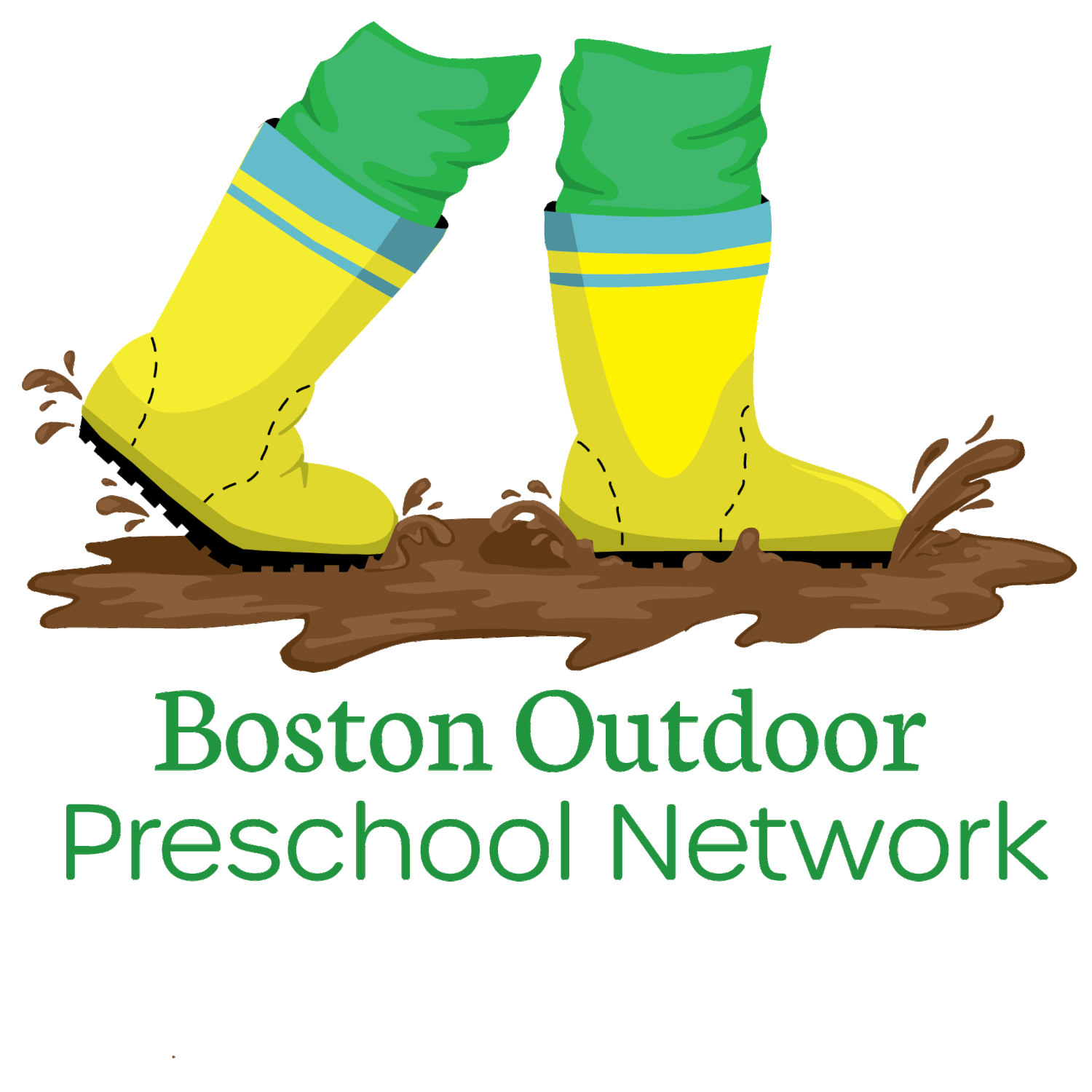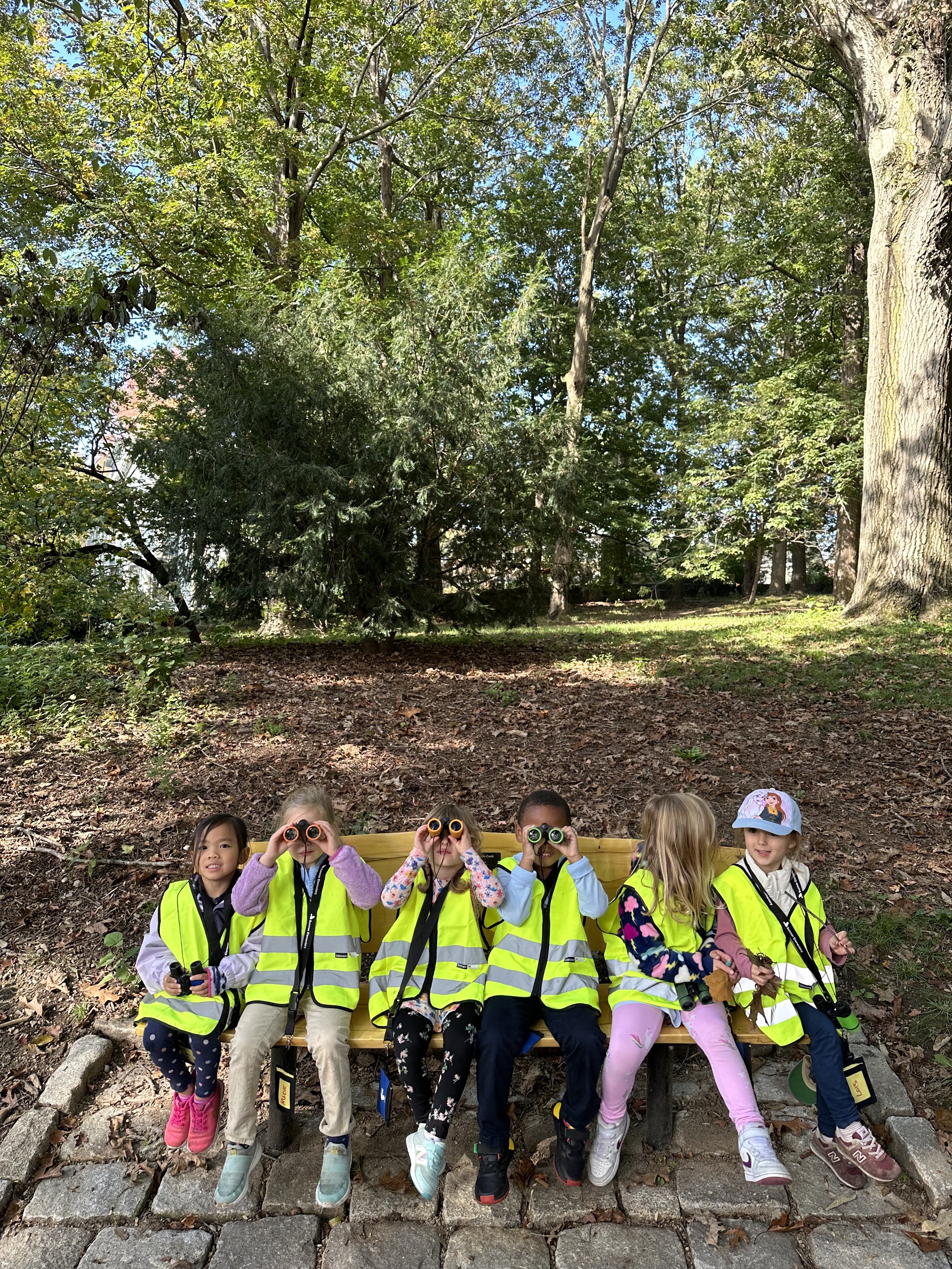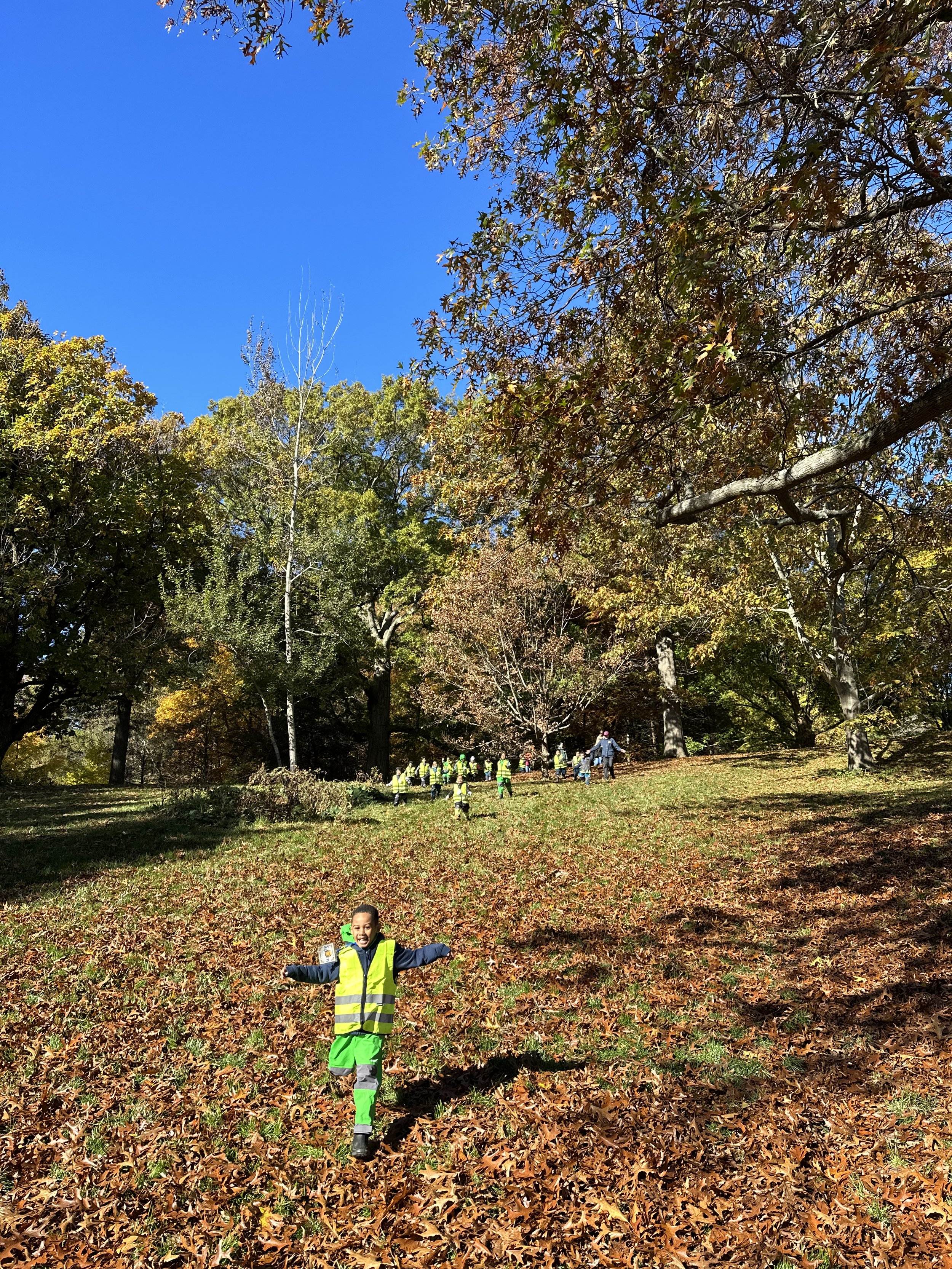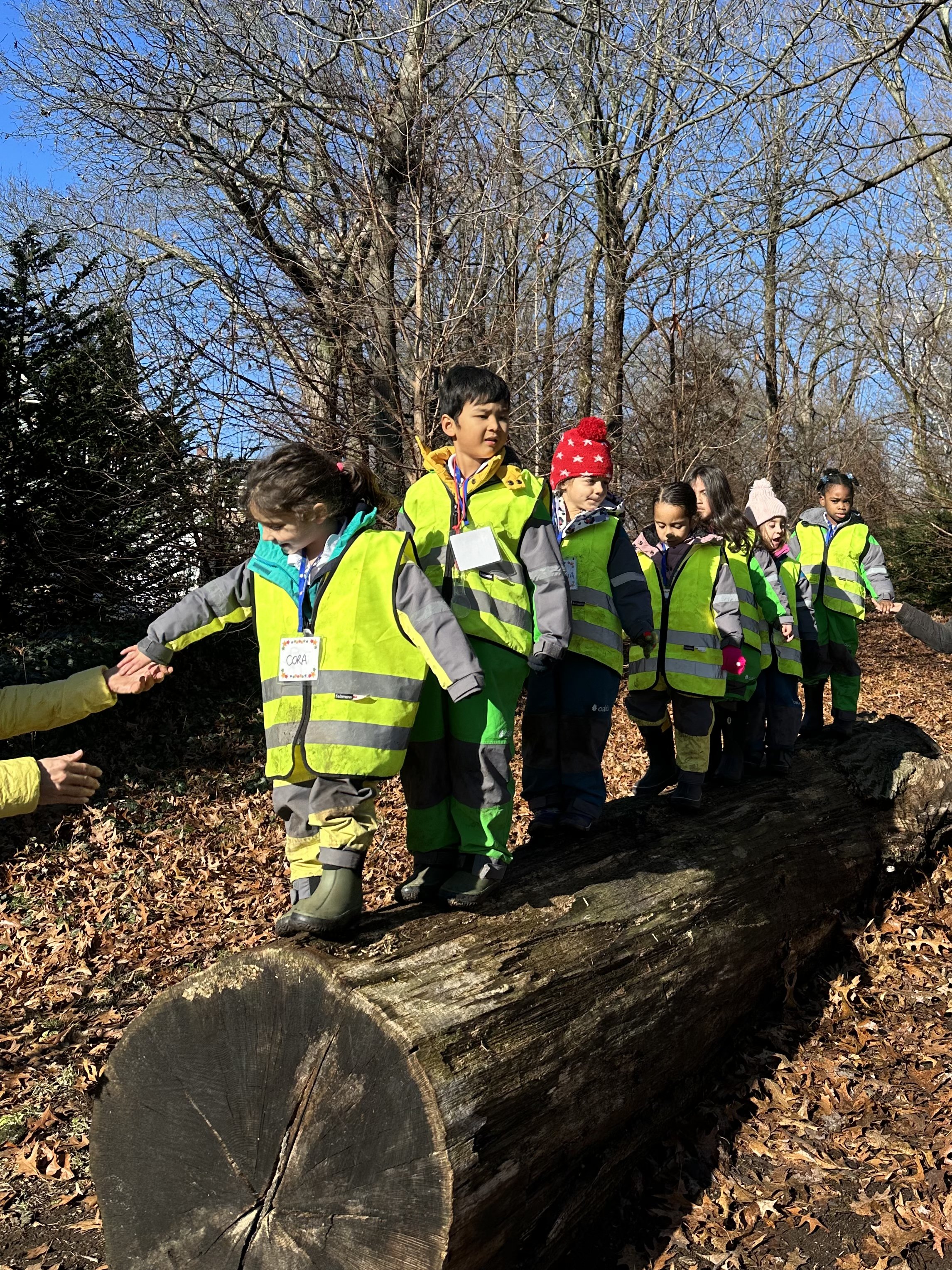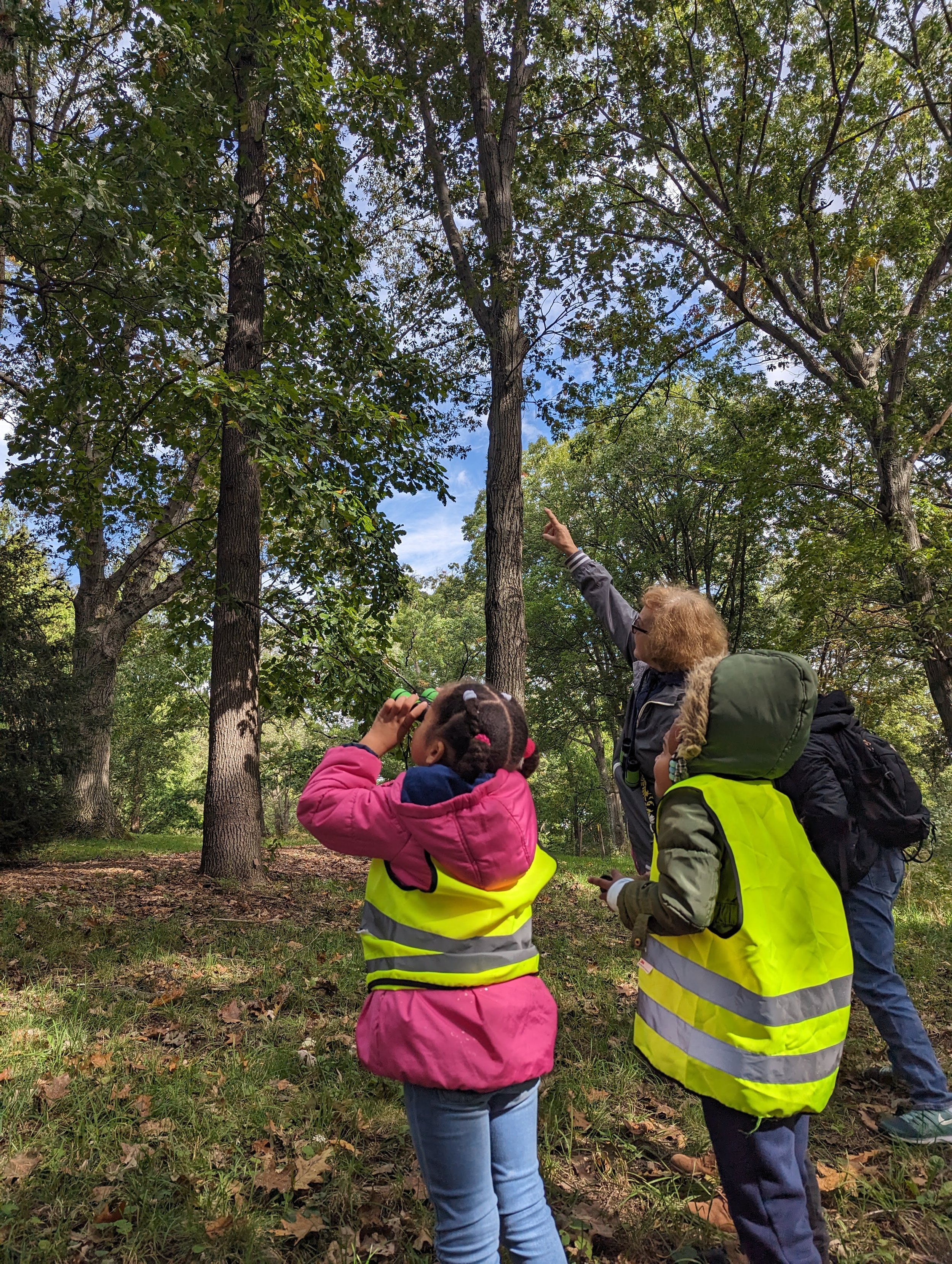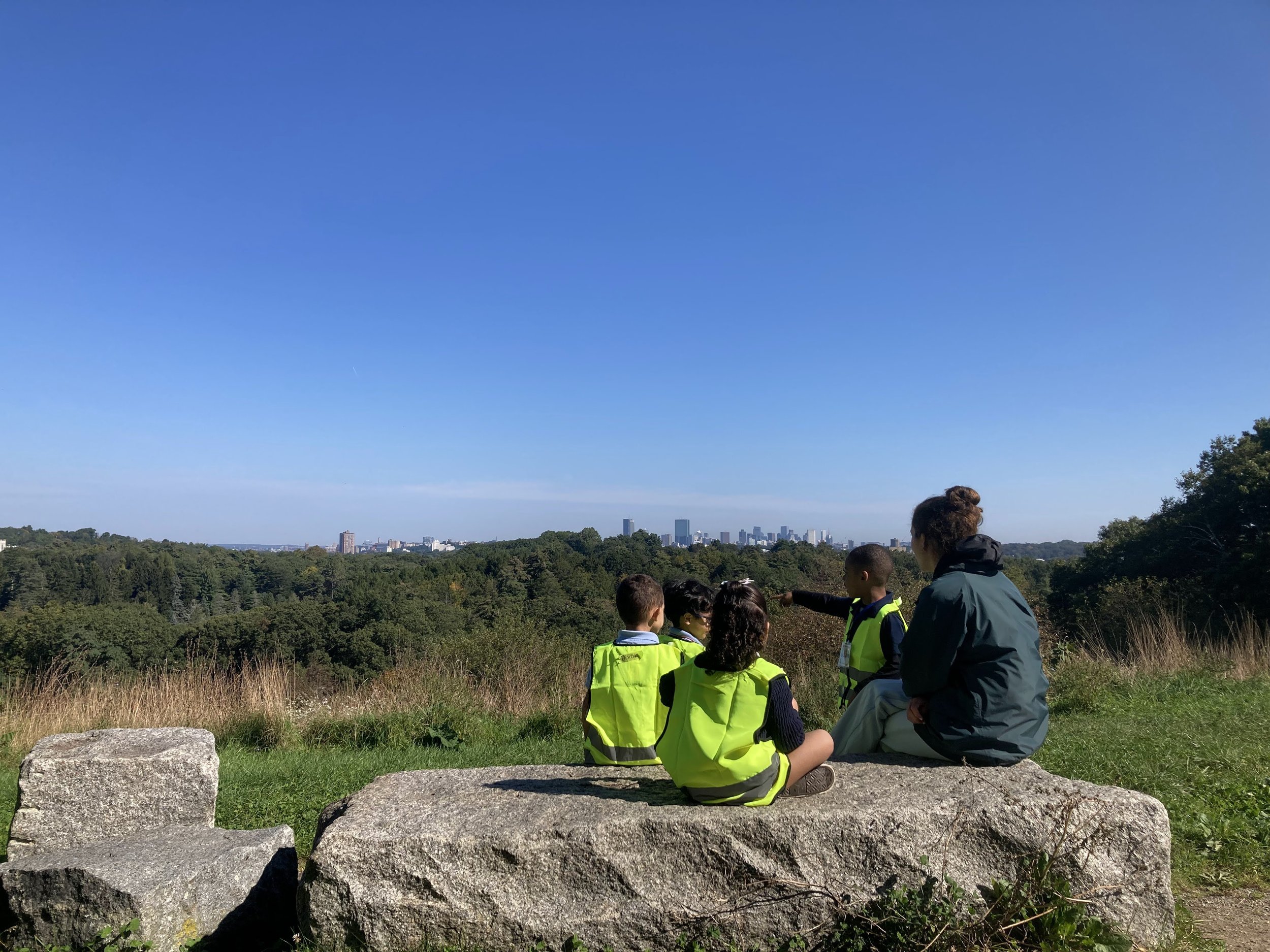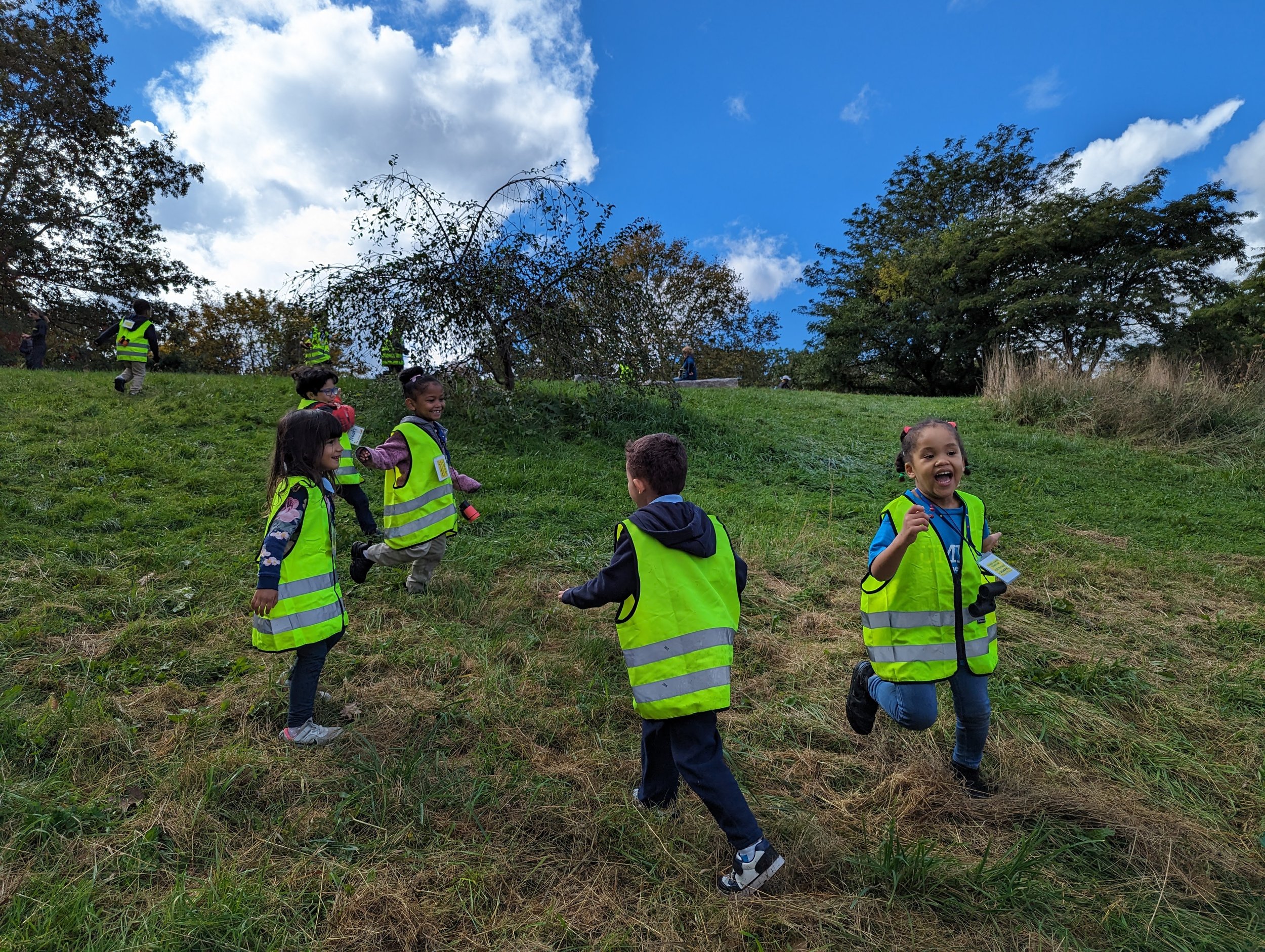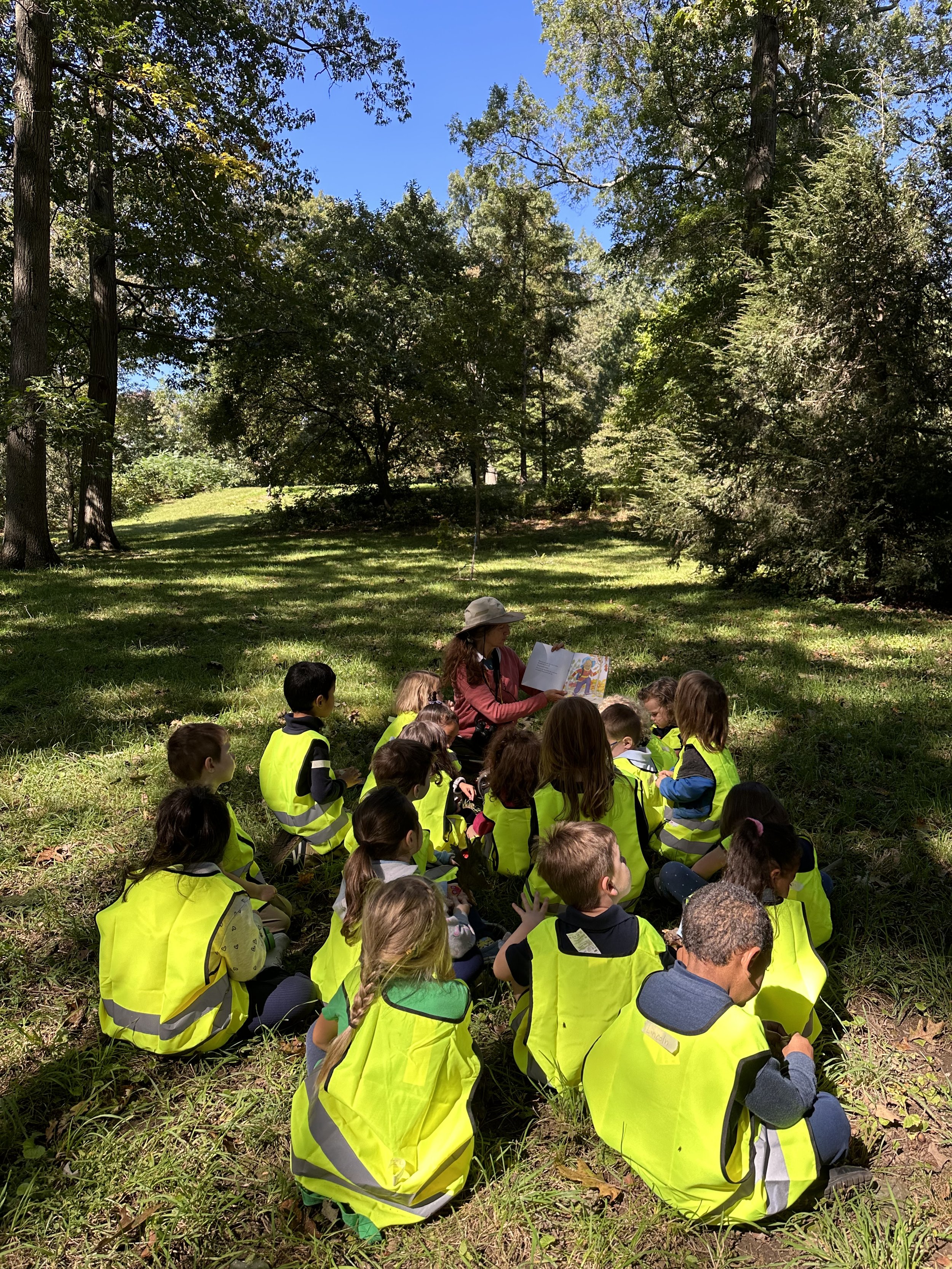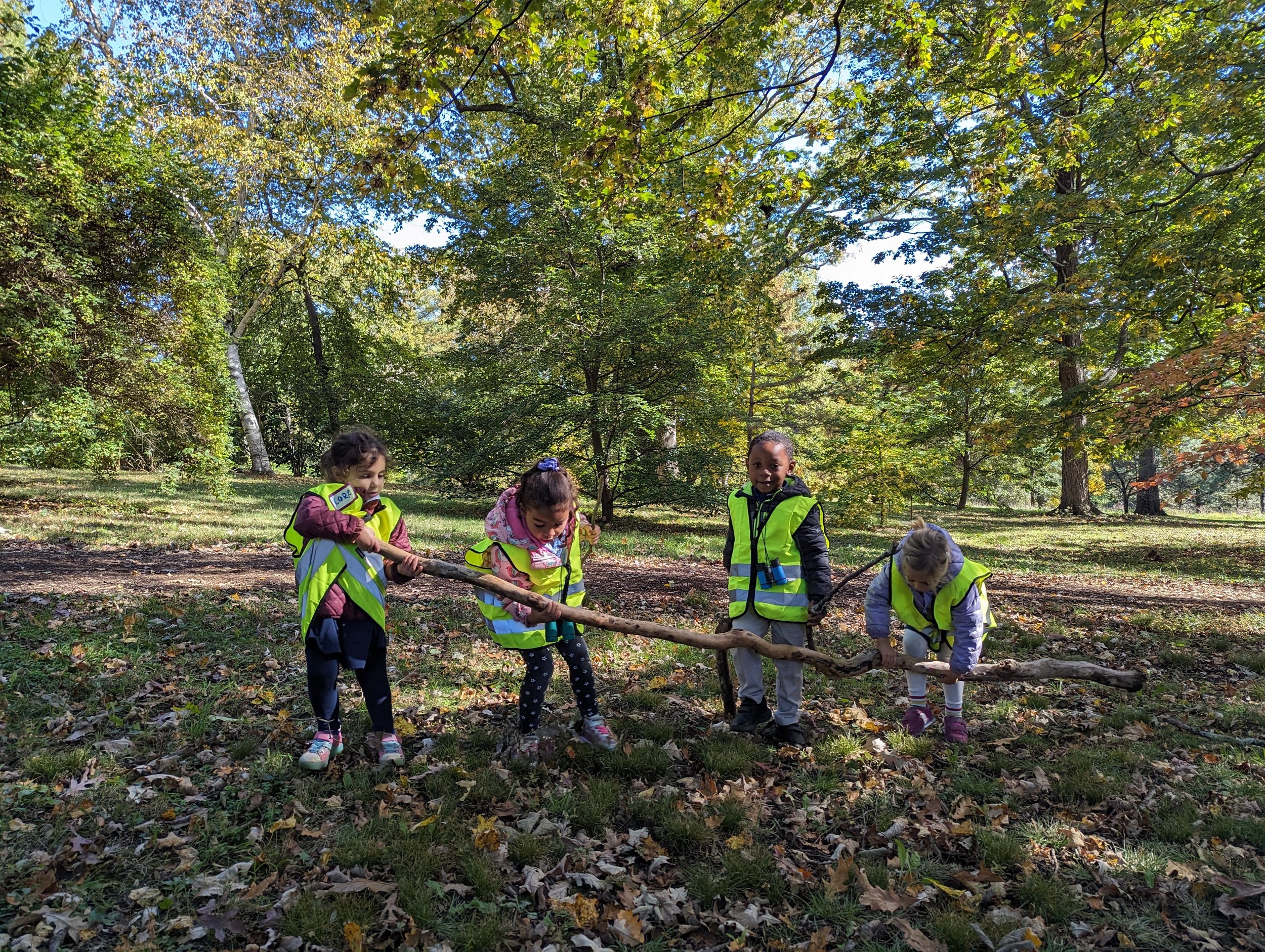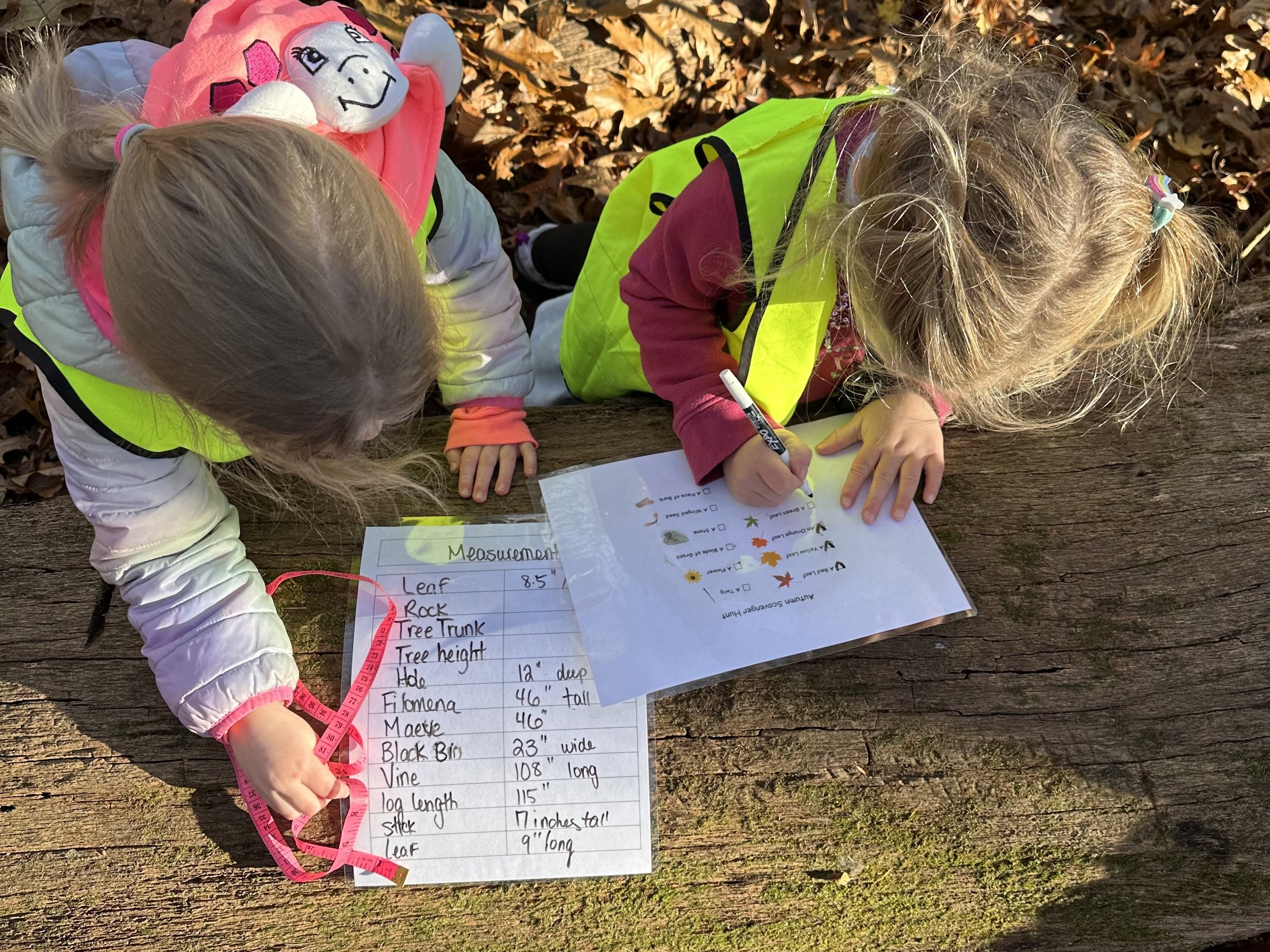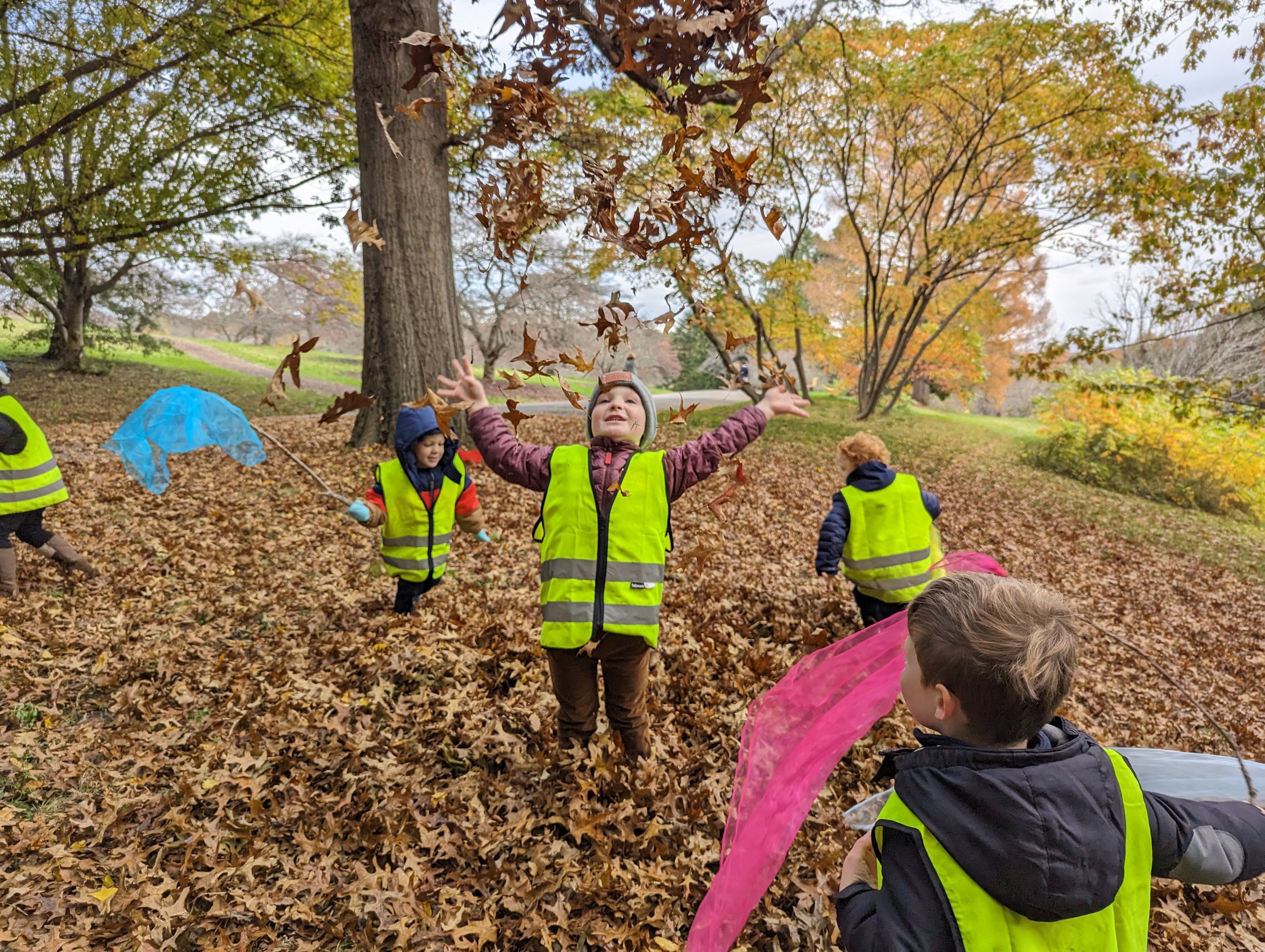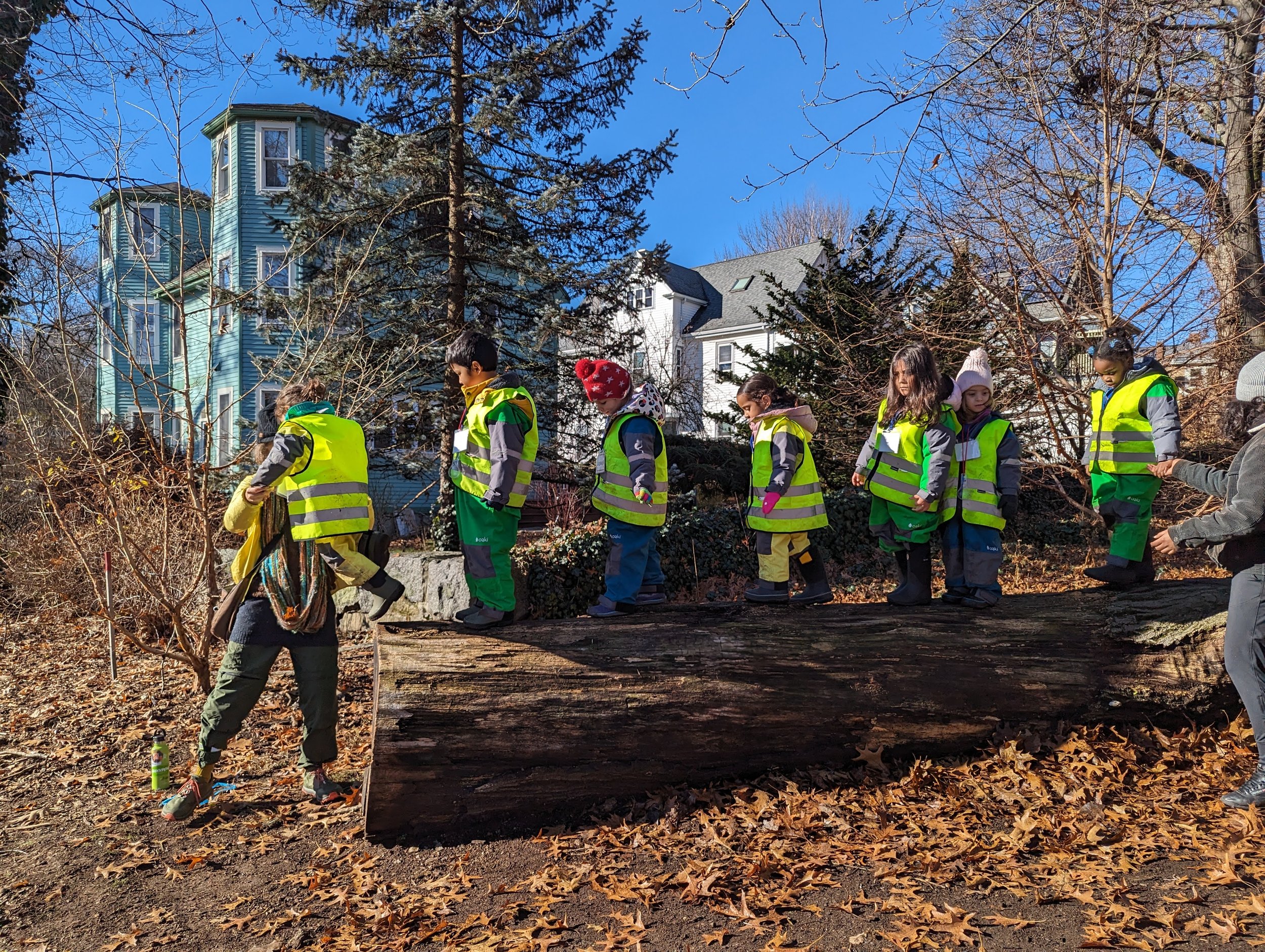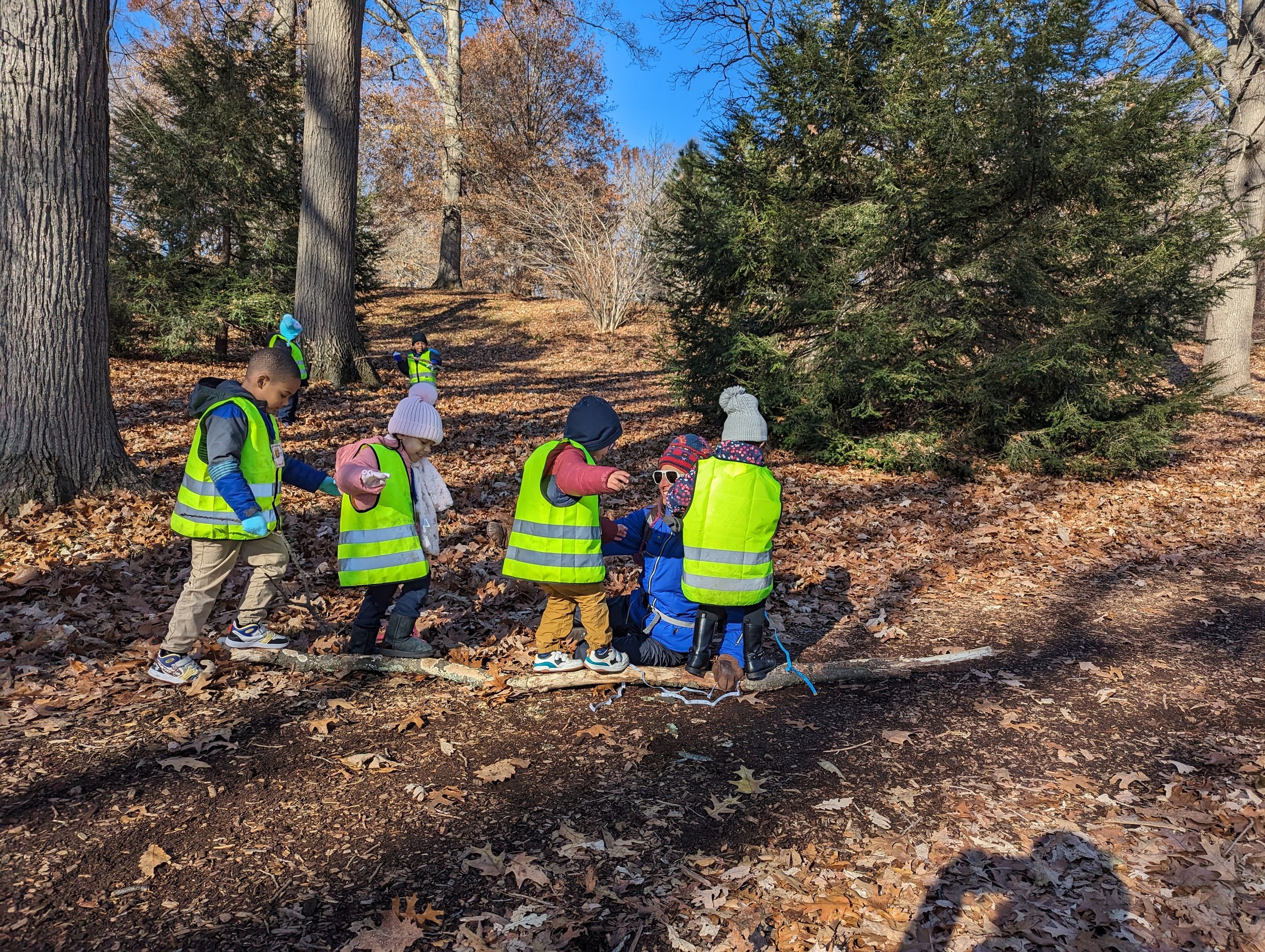Forest Days
Written by Morgan Crowley, Equity Programs Coordinator and Commonwealth Corps member; co-leader of BOPN’s Forest Days program with Mandy Slavik, Sylvia Dandrata, and Rebecca Arnoldi.
“We could have never loved the earth so well if we had had no childhood in it.” - George Eliot, The Mill on the Floss
“The benefits of nature-based education are astounding—and undeniable! From enhanced creativity and problem solving skills, to increased development across social-emotional, cognitive, and physical domains, to improved eyesight and immune system functioning...it is clear why access to nature-based early education experiences is so critical for young children [1,2,3]. Everyone has a right to nature, and providing equitable access to outdoor spaces and the benefits they create is a critical piece of BOPN’s mission.”
BOPN is currently in its second year of ‘Forest Days’, a program that provides guided access to outdoor play, and nature-connection to children in Boston public schools. Forest Days provides twenty mornings of outdoor exploration to each of the three K1 (4 year old) classrooms at Charles Sumner Elementary School in Roslindale.
At the start of this school year, we facilitated pre-assessments in each Sumner K1 class to determine their understanding of nature prior to attending our Forest Days program. In these assessments, we asked each child to answer the question ‘What is Nature?’ through a drawing and verbal explanation of their art. We also asked them to answer the question ‘How do you feel about nature?’ Each class will complete an identical post-assessment at the end of the school year, to see how the students’ personal definitions of nature have grown throughout the program.
“Most of all, nature is reflected in our capacity to wonder.”
Richard Louv, Last Child in the Woods
While the school year isn’t yet complete, we decided to give an additional ‘mid’ assessment, to gauge the impact of one 10-week session of Forest Days for the K1 students. Comparing the children’s pre and ‘mid’ assessments was inspiring. Some students initially described nature as a tree or the sun, while others described it as their house, their mom or dad, or even an ice cream shop! All three classes showed an evident shift in their understanding of what nature really is, and how they now view the natural world. ‘What is Nature?’ through the children’s eyes became much more elaborate, and was described as “You, me, and water at the Arboretum”, “The night sky, a tree and stars”, “acorns bumping into each other”, and “me on a big log trying to balance”. Their answers to the question ‘How do you feel about nature?’ began as “I’m not sure”, “fine”, and “sad”, and now include “Like I’m having a good day”, “happy happy happy happy happy”, “interested”, “I feel happy and cold and warm”, and “this picture makes me love”.
Pre and ‘mid’ assessments from two K1 children at the Charles Sumner School.
From the start of the fall season, it was evident how excited each class was to spend their designated morning at the Arboretum each week. From classes chanting “Forest Days! Forest Days!” on our walk from the school, to running and doing cartwheels upon arrival at the park—it was incredible to see how much the children valued their time spent in nature, and the space to really, truly, play.
It was a privilege for me to experience firsthand such total growth and joy within the Sumner children in the first half of the Forest Days program this school year. I was amazed to see how quickly the children’s interest in the world around them grew, and watch as they moved from learning about nature, to learning in and with nature alongside their peers and classroom teachers [4].
This spring, Forest Days will continue at the Charles Sumner school for another 10-week session with all three K1 classes, and will expand to include the K1 class at the Joseph P. Manning school in Jamaica Plain! As our Forest Days program continues to grow, we hope to inspire many more young children to learn, grow, and immerse themselves in the natural world around them.
Pre and ‘mid’ assessments from a K1 class at the Charles Sumner School.
“Volunteering with Forest Days has been a true joy, getting to know the other children in the classroom, and sharing in their joy of discovery in nature, and testing their own powers while climbing, running, and jumping from large logs. I am so thankful our kids get this time in the fresh air and in the beauty of the Arboretum each week.”
“All of the BOPN teachers were fantastic at tailoring content to the pedagogical approach the teachers wanted to adapt. For my class, that meant lots of open ended, student-led exploration. And we did a lot! From learning all about Ginkgo nuts (stinky!) to measuring tree trunks, to risk taking with log leaping, to therapeutic leaf baths—our kiddos did it all and loved every minute of it.”
1. Kellert, Stephen R. “Chapter 3: Nature and Childhood Development.” Building for Life: Designing and Understanding the Human-Nature Connection, Sland Press, Washington DC., pp. 63–89, 2005.
2. Louv, Richard. Last Child in the Woods: Saving Our Children from Nature-Deficit Disorder. Algonquin Books of Chapel Hill, 2005.
3. “More Time Outdoors May Reduce Kids’ Risk for Nearsightedness.” American Academy of Ophthalmology, 8 Jan. 2016, www.aao.org/newsroom/news-releases/detail/more-time-outdoors-may-reduce-kids-risk-nearsighte.
4. Warden, Claire. Learning with Nature: Embedding Outdoor Practice. Sage, 2015.
Many thanks to The Cabot Family Charitable Trust and Massachusetts Service Alliance for their support of our Forest Days program. We would also like to express our appreciation for the many wonderful family volunteers, and to our practicum and service learning students from Boston University and Northeastern University, respectively.
